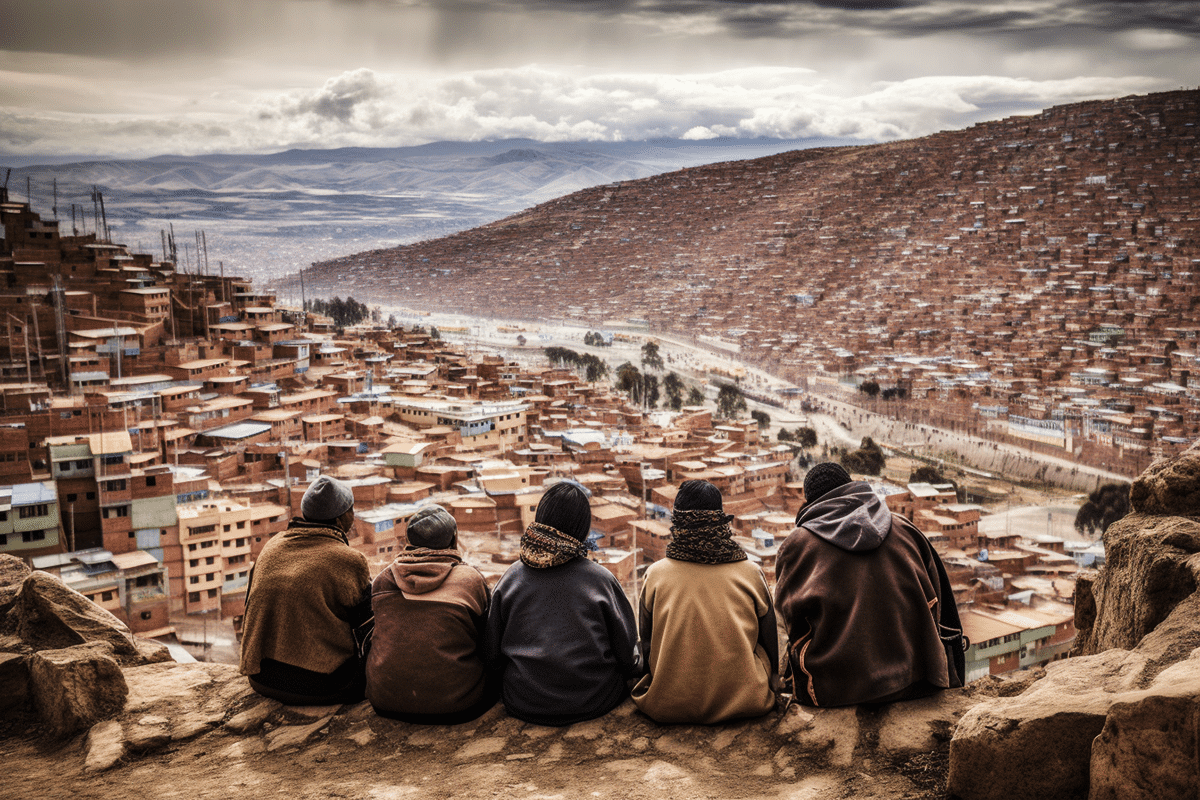What is poverty and how does it affect the world?
Poverty is a global issue that affects millions of people around the world. It is a state in which an individual lacks basic necessities such as food, shelter, education, healthcare, and other essential resources. Poverty has significant repercussions on individuals, communities and the entire world. It affects people’s ability to live a healthy and fulfilling life, and hampers economic development, social stability, and human progress.
According to the United Nations, over 700 million people live in extreme poverty, surviving on less than $1.90 per day. Additionally, 840 million people are suffering from hunger, and nearly 3 billion people have no access to basic sanitation services. Poverty disproportionately affects women and children, with girls being more likely to drop out of school and women more likely to suffer from malnutrition and health problems.
What are the causes of poverty?
Poverty is a complex issue that varies across different countries and regions. The causes of poverty are multifaceted, and they can be attributed to a combination of individual and systemic factors. Some of the main causes of poverty include:
- Lack of access to education: Education is essential for breaking the cycle of poverty. Without education, people are more likely to remain in low-paying jobs or have limited opportunities for career advancement.
- Unemployment: Inadequate job creation and an unstable economy can lead to high levels of unemployment, which in turn can perpetuate poverty.
- Low wages: Even with a job, many people still struggle to make ends meet due to low wages, lack of benefits, and job insecurity.
- Lack of access to basic resources: A lack of access to clean water, healthcare, and basic infrastructure can make it extremely difficult for people to rise out of poverty.
- Discrimination and inequality: Poverty is often tied to social discrimination and inequality, which can prevent people from accessing education, healthcare, and other essential resources.
- Natural disasters and climate change: Natural disasters and climate change can also have a devastating impact on communities, exacerbating poverty and causing displacement and loss of life.
What can be done to end poverty?
The fight against poverty requires a comprehensive approach that addresses the root causes of poverty and supports sustainable economic development. Some of the most effective strategies for ending poverty include:
- Investing in education: Education is one of the most powerful tools for breaking the cycle of poverty. Governments and organizations must invest in access to quality education for all, especially for girls.
- Economic growth and job creation: Promoting economic growth and creating job opportunities can help lift people out of poverty. Governments must prioritize job creation and provide training and support for workers to gain the skills required for high-paying jobs.
- Improving access to basic resources: Access to clean water, healthcare, and basic infrastructure can have a major impact on people’s quality of life. Governments must prioritize investment in these areas to ensure that everyone has access to basic resources.
- Fighting discrimination and inequality: Discrimination and inequality are major drivers of poverty. Governments must tackle these issues head-on, promoting equal opportunities for all regardless of gender, race, religion, or socioeconomic background.
- Addressing climate change: Climate change exacerbates poverty and disproportionately affects low-income communities. Governments must take urgent action to mitigate the impact of climate change and support vulnerable communities.
What role can individuals play in ending poverty?
Individuals can also play a significant role in ending poverty. Here are some ways for individuals to get involved:
- Donate to organizations that fight poverty: Donating to organizations that fight poverty can have a significant impact. Choose trusted organizations that have a proven track record of success.
- Volunteer: Volunteering with organizations that work on poverty alleviation projects can also make a difference. Many organizations rely on volunteers to carry out critical work and make a real impact in the fight against poverty.
- Educate yourself and others: Learn about the causes and consequences of poverty, and share your knowledge with others. Raising awareness is one of the most powerful tools we have for fighting poverty.
- Support sustainable and ethical business practices: Choose to buy from businesses that prioritize sustainable and ethical practices, and encourage others to do the same. By supporting responsible business practices, we can help combat poverty on a global scale.
- Vote for policies that support poverty alleviation: Support political candidates and policies that prioritize poverty alleviation and sustainable economic development.
Conclusion
Poverty is a complex and multifaceted issue that affects millions of people around the world. Addressing poverty requires a comprehensive approach that tackles the root causes of poverty, promotes sustainable economic development, and supports vulnerable communities. The fight against poverty is not just the responsibility of governments and organizations, but also individuals. By getting involved, donating, and supporting sustainable practices, we can all play a role in ending poverty and building a better world for all.
- Desafíos y Estrategias en el Vestuario Empresarial Contemporáneo - julio 18, 2025
- Qué considerar al digitalizar tu contabilidad - julio 17, 2025
- Cómo cumplir con la ley y ahorrar usando software - julio 15, 2025

